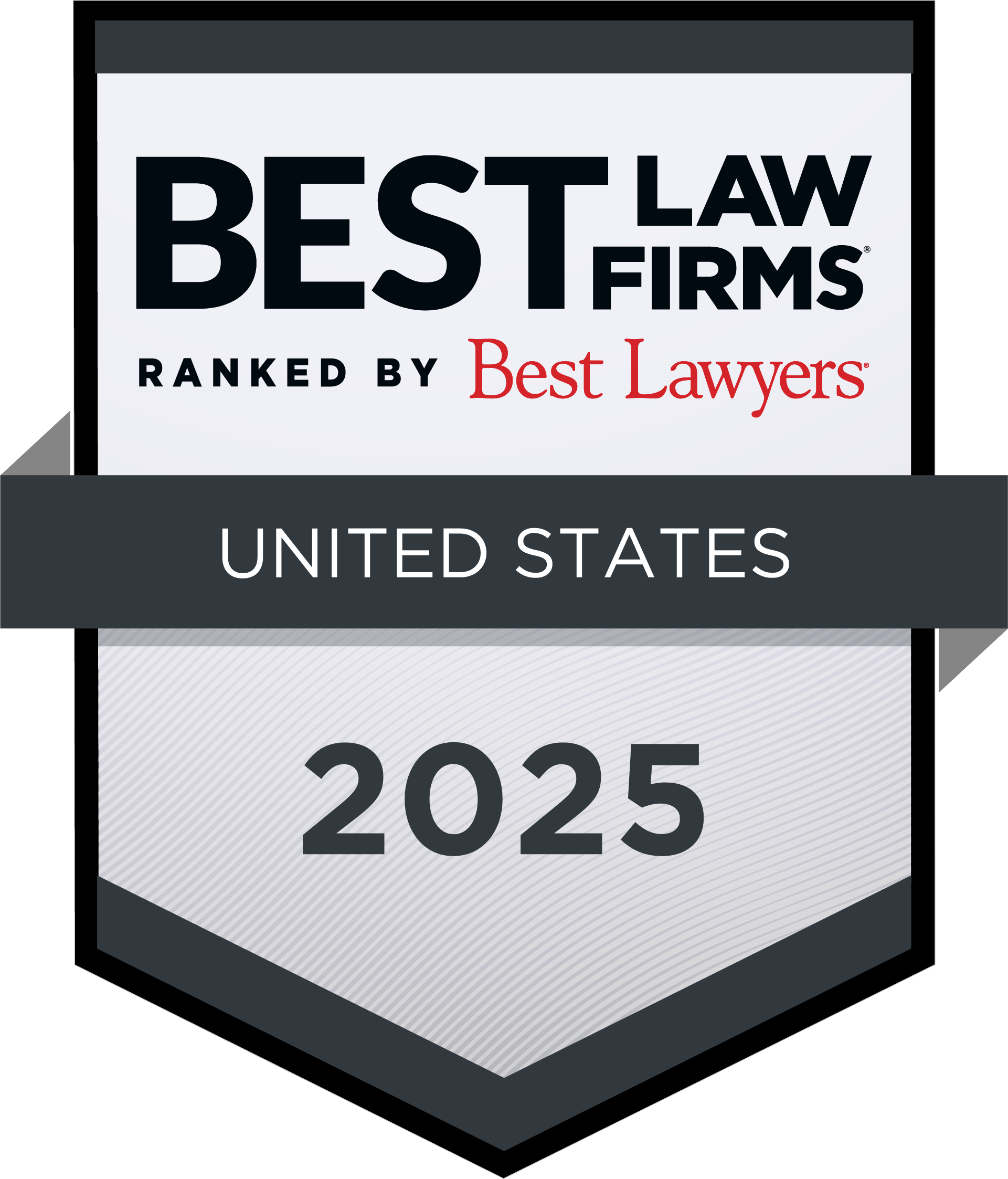Overview
Litigation funding—the practice of an outside entity financing the costs of investigating and litigating a case—has boomed in recent years. While this type of funding has become a fixture of the legal industry, the rules governing it are complex and shifting.
Broadly speaking, litigation funding (or litigation financing) refers to the practice of third-party lenders providing money to participants in litigation, which is repaid upon the successful resolution of the litigation. Financial products offered by these lenders vary greatly, as lenders may enter at points throughout the litigation lifecycle and often provide bespoke credit facilities. Bailey Glasser’s efforts focus largely on disputes stemming from non-recourse loans provided to plaintiffs’ law firms, including mass-tort firms, to cover the costs of investigating and litigating on behalf of their clients.
We understand the litigation funding industry and can help you move forward with confidence when reaching funding deals or working through litigation funding disputes.
Law firms of every size can now avail themselves of litigation funding to cover the expenses associated with advancing their cases. But the legal regimes governing this type of financing vary by jurisdiction and are constantly evolving. When litigation funding deals go wrong, law firms must quickly address intersecting legal doctrines and ethical rules in order to chart a path forward. We assist law firms in navigating this unsettled terrain.
Our attorneys stay up to speed on the latest developments in litigation financing law across the country and internationally, enabling us to provide cutting-edge advice and serve as a leader in this rapidly evolving industry. When the need to litigate arises, our accomplished trial lawyers stand ready to fight—and win—in courthouses nationwide.
Although the litigation financing industry is relatively new, many of the causes of action that arise in this area, such as breach of contract, tortious interference, and fraud, are traditional mainstays of our broader trial practice. Bailey Glasser is able to leverage its vast commercial litigation experience to help parties enmeshed in litigation funding disputes.
Our team includes partner Timothy Duree, a former federal prosecutor with deep experience in financial matters and financial crimes; Cary Joshi, the firm’s Chambers-ranked Commercial & Environmental Litigation Practice Group Leader and a Lawdragon Top 500 Litigator in America; David L. Selby, the firm’s Mass Torts Practice Leader and a nationally ranked litigator, including as a Lawdragon Top 500 Litigator in America and nationally by Chambers & Partners; and attorney Stephen C. Scott, a highly accomplished litigation lawyer with national litigation experience.
If your firm needs an advisor to guide it through the ethical concerns relating to a litigation funding deal, a trial attorney to litigate a funding contract gone wrong, or a steady hand in a sudden moment of crisis, we are equal to the task. We can provide the expertise, tenacity, and clarity you need to address the most complicated litigation funding disputes.




Contacts
Key Contact
Our Team
News
News & Insights
Client Alert: Independence First
Client Alert: Independence First
Independence First: An Ethical Test for Litigation Funding
Attorney Independence is a Primary Consideration for Ethics Authorities Considering Litigation Funding Agreements
Author: Timothy Duree, Partner, Commercial & Environmental Litigation Practice Group
Introduction
Litigation funding - the practice of an outside entity financing the costs of investigating and litigating a case - has become a fixture of the legal industry. Law firms of every size can now avail themselves of funding options to assist in covering expenses associated with advancing their cases. Despite the prominence of this type of financing, legal regimes governing it vary by jurisdiction and are constantly evolving.
Litigation financing agreements cover many of the elements a party would expect in any type of loan, like financial terms and interest rates. But one factor that differentiates litigation funding agreements from traditional financial transactions is that these agreements sometimes grant to the lender a degree of influence or oversight of the litigation. Of course, this raises an array of questions relating to attorney ethics, many of which remain unclear.
Of the handful of ethics authorities that have issued opinions directly addressing litigation financing, one issue remains paramount: attorney control of litigation and independence in attorney judgment. Although ethics bodies apply varying ethics rules to address the pertinent issues, a common theme between them is an emphasis that funding agreements will be impermissible if they imperil or restrict attorney independence.
Below are highlights from a few of the states that have addressed the issue and prioritize the importance of protecting attorney independence.
New York
In New York City, litigation financing agreements in which a lender obtains a contingent stake in a lawyer’s legal fees are impermissible under Rule of Professional Conduct 5.4(a) because they constitute fee-sharing with a nonlawyer. N.Y.C. Comm. on Pro. Ethics, Formal Op. 2018-5 (2018). “Rightly or wrongly, [Rule 5.4] presupposes that when nonlawyers have a stake in legal fees from particular matters, they have an incentive or ability to improperly influence the lawyer.” Id. A subsequent New York City ethics opinion emphasizes the necessity of attorney independence, noting that Rule 5.4(a) “is intended to serve two overarching purposes - to protect clients from non-lawyers' interference with their lawyers' independence of professional judgment and to prevent the unauthorized practice of law by non-lawyers.” N.Y.C. Comm. on Pro. Ethics, Formal Op. 2024-2 (2024).
Texas
The Texas Professional Ethics Committee viewed the issue through the same lens as its New York City counterpart, finding that Texas Rule 5.04 prohibits a lawyer from entering into a financing agreement by which the lender would obtain a portion of the attorney’s contingent recovery. Texas Pro. Ethics Comm., Op. No. 576 (2006).
There, the ethics committee explained that such an agreement constituted fee-sharing with a non-lawyer, which is prohibited in order to “avoid encouraging or assisting non-lawyers in the practice of law.” Id.
Ohio
In Ohio, the state disciplinary body approached the issue of litigation financing by referencing Rule 2.1, which states that “a lawyer shall exercise independent professional judgment.” Supreme Court of Ohio Bd. of Comm’rs on Grievances and Discipline, 2021 WL 2182140, at *3–4. This comports with a prior Ohio opinion noting that in a litigation financing agreement, “a lawyer must guard against undue influence” and must “exercise independent professional judgment.” When obtaining litigation funding, the lawyer must make certain that the funder “does not attempt to dictate the lawyer’s representation of the client.” Supreme Court of Ohio Bd. of Comm'rs on Grievances and Discipline, 2012 WL 6591524, at *6.
California
The California Committee on Professional Responsibility and Conduct avoided an absolute prohibition on litigation control by a financer, stating that “[t]he Committee does not reach a general conclusion that any particular degree of control is per se unethical.” Cal. Eth. Op. 2020-204 (2020). But the Committee advised that if a financing agreement impacts a lawyer’s ability to control the litigation, the lawyer has an obligation to advise the client of this pursuant to Rule 1.4, which governs client communications. Id. The California authority further noted that litigation funding agreements “do not alter the lawyer’s ethical obligation to pursue the client’s best interest.” Id.
Conclusion
The state ethics authorities that have squarely addressed issues relating to litigation funding have approached the pertinent issues from differing angles and have relied on varying ethical touchstones to ground their analysis. But among several of these opinions, there is a consistent theme: attorney independence is sacrosanct, and a litigation funding agreement that bestows decision-making authority on the funder will be viewed with skepticism—and may potentially be unenforceable.
FAQs
FAQs
What is litigation funding?
Broadly speaking, litigation funding (or litigation financing) refers to the practice of third-party lenders providing money to participants in litigation, which is repaid upon the successful resolution of the litigation. Financial products offered by these lenders vary greatly, as lenders may enter at points throughout the litigation lifecycle and often provide bespoke credit facilities. Bailey Glasser’s efforts focus largely on disputes stemming from non-recourse loans provided to plaintiffs’ law firms, including mass-tort firms, to cover the costs of investigating and litigating on behalf of their clients.
When did litigation funding become prominent in the United States?
Litigation funding has blossomed in the United States over the last two decades. Prior to gaining traction in the United States, litigation funding was utilized in the 1990s in certain Commonwealth nations, like Australia and the United Kingdom, where rules on outside investment in lawsuits had become more relaxed.
What are champerty and maintenance, and how do they impact litigation funding?
Maintenance is the act of funding or providing support to a lawsuit by someone who is not a party to the suit. Champerty is maintenance performed by the outside party in exchange for a portion of the profits from the lawsuit.
Traditionally, champerty and maintenance were both prohibited due to the fear that non-party involvement in lawsuits could distort the legal system. Now, the law is mixed. Many states, like Ohio, still disallow champerty and maintenance. Others, like New York, formally prohibit these practices but have drastically limited their scope and applicability. Minnesota has in recent years abolished champerty as a tort. And in some jurisdictions, like California, champerty was never prohibited at all.
Generally, there is a trend among courts to move away from enforcement of champerty and maintenance under the belief that modern attorney ethics rules provide adequate protection against vexatious or otherwise improper lawsuits. But even so, champerty remains in force in many jurisdictions, and the applicable laws can vary significantly from state to state.
The restrictions on a firm’s ability to accept litigation funding will often be impacted by the status of maintenance and champerty in the pertinent jurisdictions.
Could litigation funding agreements raise concerns about attorney control?
Yes. All jurisdictions in the United States demand that a lawyer’s professional judgment not be controlled by a nonlawyer. Most states specifically provide that an entity that pays a lawyer to provide legal services to another cannot regulate the lawyer’s professional judgment. In the vast majority of jurisdictions, this mandate is codified in Rule 5.4 of the Rules of Professional Conduct.
Litigation funding deals sometimes obligate firms to provide updates, disclose case information, grant some oversight authority, or share a degree of decision-making responsibility with the litigation funder. Requirements like these can create concern that a law firm may be influenced by the desires of its funder, which could undermine attorney independence and violate Rule 5.4.
Read our October 2025 client alert about rulings emphasizing the importance of attorney independence here.
Does litigation funding implicate other ethical rules?
Yes, many. For example, Rule of Professional Conduct 1.6 prohibits the disclosure of client information, which can be implicated when a firm shares case materials with a current or prospective litigation funder. Rule of Professional Conduct 1.8(f) restricts a lawyer’s ability to receive compensation from a party other than the client, and Rule of Professional Conduct 1.5 outlines the parameters for permissible fee agreements. Other rules may come into play depending on the facts of the case, the terms of the litigation funding agreement, and the jurisdictions at issue.






